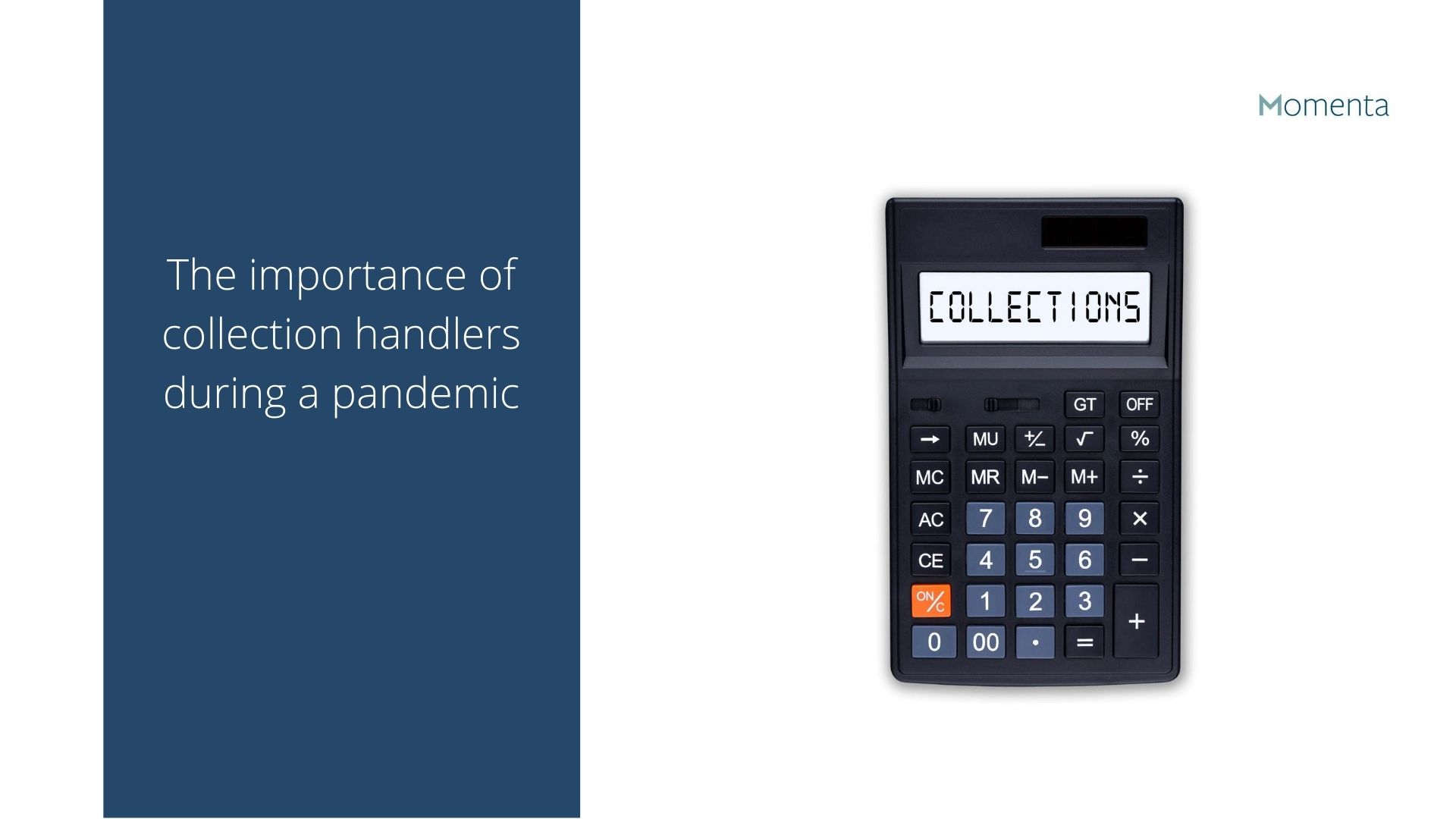The importance of collection handlers during a pandemic
The importance of collection handlers during a pandemic
During these unprecedented times, businesses, in particular those trying to collect finance payments from consumers, are facing challenges they might never have anticipated or planned for. The government has mandated financial support for individuals and some SMEs in the shape of payment holidays. This has left lenders picking up the tab as they seek to not only create appropriate policies and procedures but also to amend systems and train staff to cope with the sheer amount of additional work placed upon their collection teams. Lenders are needing to stand up additional capacity remotely and at speed. However, whilst working intensively to face the crisis, it is a challenge to handle this task in house, especially from a collection’s perspective.
Payment holidays have been extended
Certain payment holidays eg, car finance have recently been extended by a further 3 months, as the government seeks to continue the forbearance provided to consumers as the financial ramifications of the pandemic on consumers’ finances have continued to increase – and the government seeks approval in the “court of public opinion” . Additional to financial losses comes the rise of unemployment, with UK jobcentre claimants rising by 126% to 2.8m since the start of the lockdown. This suggests that more individuals will be forced to extend payment holidays as a means to survive. With more individuals delaying their payments, firms need to understand which clients are doing so and for how long for – and whether continued forbearance is actually in the customer’s long term interests.
The onus is on you to conduct affordability testing
Affordability testing should be at the forefront of your organisation’s collections teams, especially when trying to understand the implications of payment holidays and payment postponements. The onus falls on the lender to ensure that affordability testing is completed for each individual to understand their ability to repay the credit owed. It requires asking key questions but doing so in an empathetic manner. These conversations are crucial not only to the relationship you have with your customers but to the future success of your business.
Automation, and using algorithms (just ask Gavin Williamson)right now is not a viable option when calls need to be handled -and more importantly, decisions made -by relatable, empathetic, and skilled negotiators who can complete the debt reviews comprehensively and to a very high standard, whilst treating your customers fairly – and making them feel they’ve been treated fairly, too. Once they assess the affordability of an individual, they can renegotiate payment terms that make sense for both parties in the short and long term. As a result, many Momenta clients are opting for UK based teams as opposed to offshoring.
Affordability testing should not be handled in a one-off approach
Our experience, across multiple projects, is that it is likely, you will need a number of calls to complete the affordability testing, renegotiate payment terms, and update your internal records. While many lenders may wish to have a quick turnaround time, the truth is that this type of remediation may not be as quick as many anticipate.
The regulators are watching
The FCA has given the market ample warning, which is firmly in the public domain as a result of both government announcements and traffic on social media. And just last week the FCA asked firms to contact customers coming to the end of a first payment freeze to find out if they can resume payments – and if so, agree on a plan on how the missed payments could be repaid. It is in your firm’s best interest to ensure that over the next few weeks you are engaging with your customers to work out the best possible repayment plans.
The FCA has recently issued new guidance to firms on mortgage repayments to ensure that consumers – those who have had payment deferrals and continue to face financial difficulties as well as consumers whose financial situation may be newly affected by coronavirus after the current guidance ends – get the support they need. Continued guidance and support should be given by consumers impacted financially by the pandemic until the 31st of October 2020.
Firms will need to ensure that they contact their consumers in due course before the deadline to ensure that a tailored plan is developed to help them catch up with their payments on a programme that works best for their financial situation. Firms have been told that a ‘one size fits all’ approach should not be used, but rather a tailor-made one that reflects the needs of the consumer.
Christopher Woolard, Interim Chief Executive at the FCA, stated:
“It is important that consumers who can afford to resume mortgage payments should do so. However, we understand that borrowers facing payment difficulties because of the pandemic will continue to face uncertainty and may also experience temporary interruptions in income. We are proposing that firms contact their borrowers in good time before the end of a payment holiday, and work with them to come up with a tailored plan to help get them back on track. Firms should not take a ‘one size fits all’ approach[1].”
Support should also be given in the sense of helping consumers manage their finances whilst they try to get back on track. The FCA has suggested that self-help, money guidance, and referral to debt advice services should be given [2]. Lenders will need to develop an accurate understanding of their customer’s financial situation and ensure that any plans mitigate any risk of ‘unaffordable lending’. It is also critical that lenders make their customers aware before any agreement is reached of any implications to their credit reference from the agreement – and any additional support should be given if required.
This further highlights the need for capable, compassionate, and experienced collection handlers to help implement FCA guidance on payment holidays and deferred loans. Treating customers as a number, or assessing customers’ financial positions by the hard and uncaring application of a process is patently not going to be acceptable.
Collection service resource solutions
Our people are experienced, empathetic collection professionals who understand how your customers have been impacted by COVID, whilst having the appropriate skills required to ensure that the right payment plan is agreed on, in a manner that is compliant with the FCA and your brand values. Momenta supplies teams large or small, of skilled collection staff, on-demand, to assist with increased collection volumes for any business.
Get in touch with us today to see how we assist with your collection efforts.
Citations:
[1] FCA. “FCA Proposes the next Stage of Support for Mortgage Borrowers.” FCA, 27 Aug. 2020, www.fca.org.uk/news/press-releases/fca-proposes-next-stage-support-mortgage-borrowers. Accessed 27 Aug. 2020.
[2] FCA. “FCA Proposes the next Stage of Support for Mortgage Borrowers.” FCA, 27 Aug. 2020, www.fca.org.uk/news/press-releases/fca-proposes-next-stage-support-mortgage-borrowers. Accessed 27 Aug. 2020.

